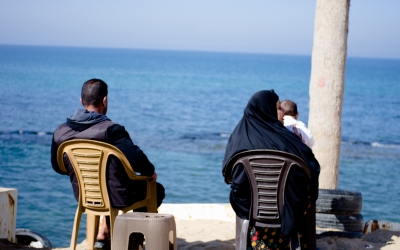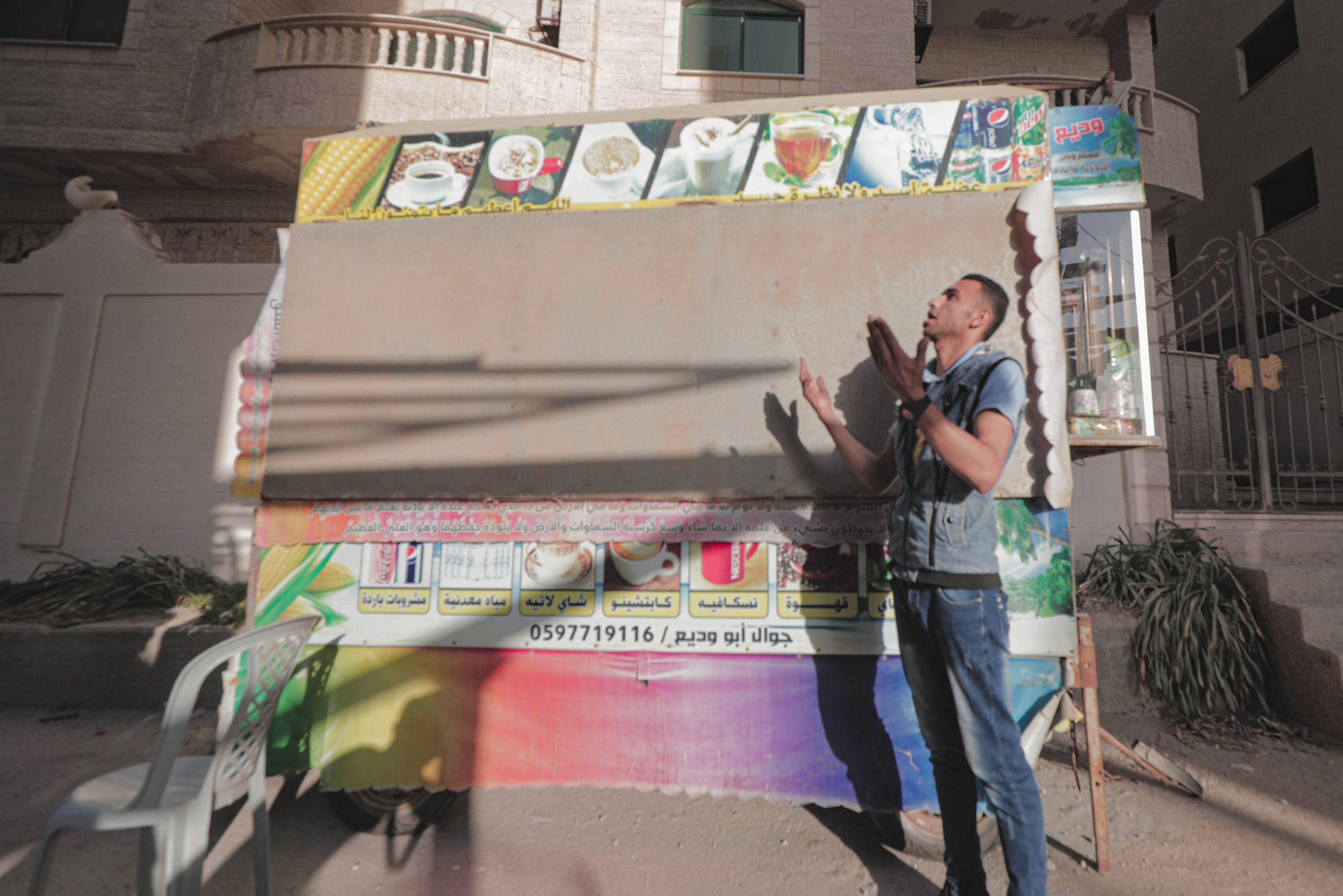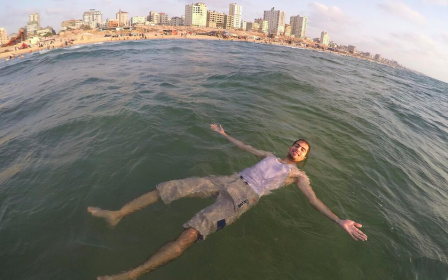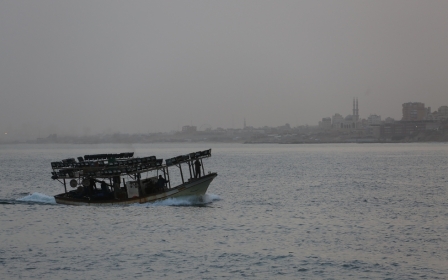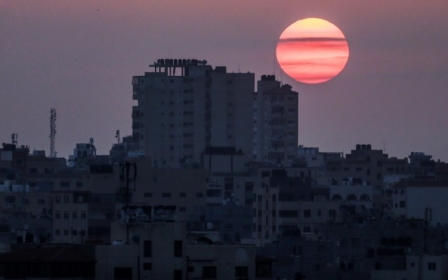'I can't lose my job': Seaside vendors decry gentrification of Gaza beach
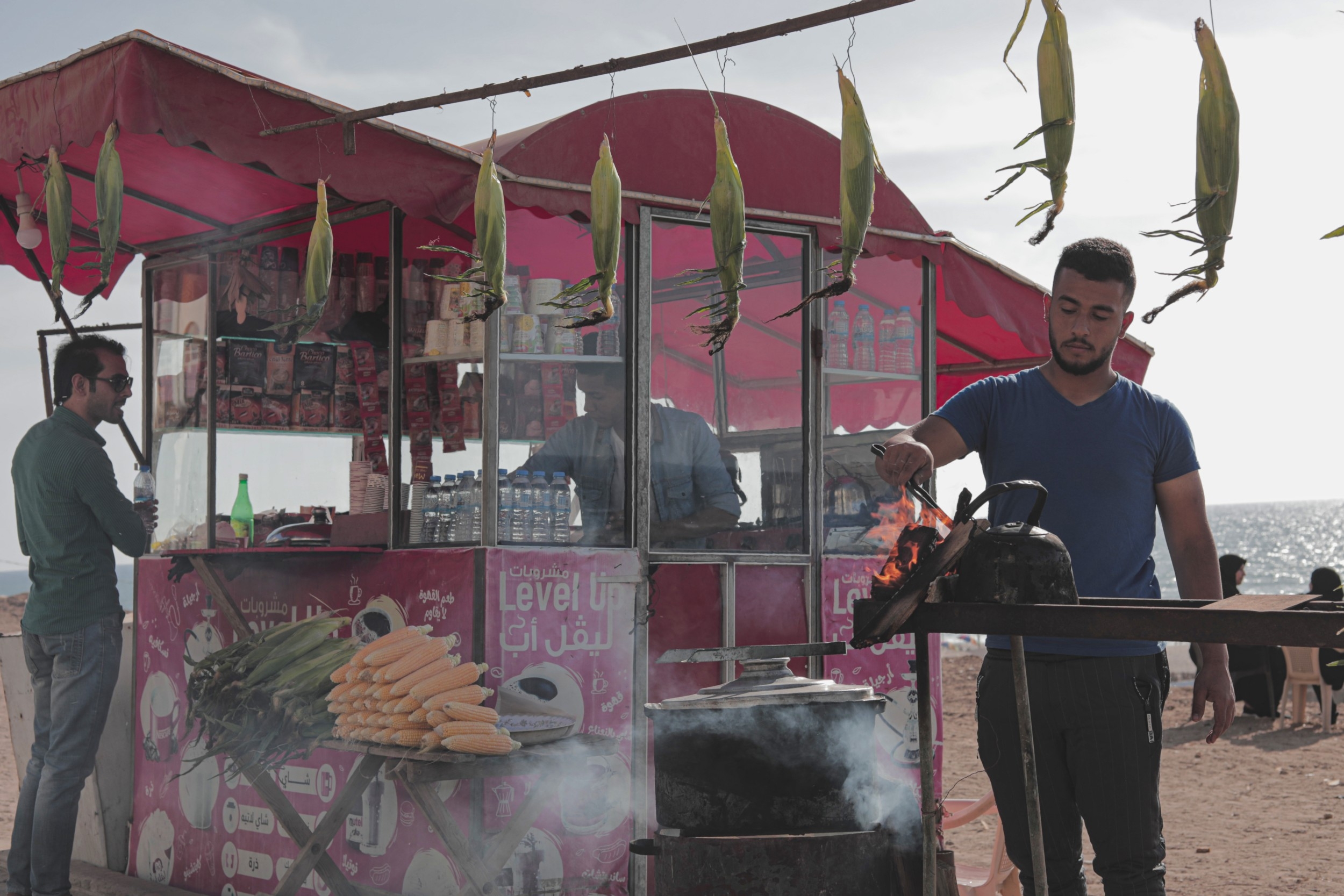
For residents of the besieged Gaza Strip, the beach has long been a place of respite. Dotting the coastline, hundreds of young Palestinians set up carts to sell coffee, tea or corn at a small price to passers-by enjoying the view of the Mediterranean Sea.
Standing behind a wooden booth, often for more than 10 hours a day, they usually come home with 20 to 25 shekels ($5 to $7) in their pockets.
New MEE newsletter: Jerusalem Dispatch
Sign up to get the latest insights and analysis on Israel-Palestine, alongside Turkey Unpacked and other MEE newsletters
But on Monday, Gaza City leadership ordered that all mobile carts along the seafront, most of which operate without permits, be replaced by municipality-owned cement booths.
Would-be vendors will have to pay the municipality $2,500 in rent per year for a booth - $1,500 up front before 20 June in order to secure a booth, and another $1,000 over the course of the year. Those unable to afford the municipality rent have been threatened with confiscation of their informal carts, sellers told Middle East Eye.
The Gaza City municipality, which is run by the Hamas-led authorities in the besieged enclave, has argued that the move is an attempt to improve the infrastructure and beautify the view along the coast.
Vendors in the impoverished territory are arguing that the decision will essentially funnel all of their income into rent.
Priced out of a job
The head of Gaza municipality, Yahya Sarraj, told MEE that the project aimed to ease vendors' working conditions and provide them with a degree of stability.
"They always work with the fear of being chased by the municipality as they are illegal, but with this project they will have their own place with municipality protection," he said. "The sellers pay too much money to move their wares daily as they cannot keep them on the beach, but with this project they will enjoy keeping their tools inside the booth, so the project is good for them.
"The beach in past years was full of chaos, disorganised, and did not represent a civilised view of the city. The project will address this issue and improve the view" for both sellers and others.
He added that current beach vendors would receive priority in renting the new booths, if they can afford them. "Those who can't will be replaced by others who want to rent one of the booths," Sarraj said.
The project, according to the public official, will start with between 60 and 80 booths up for rent. At $2,500 each, the new booths could in theory bring in up to $200,000 in revenue to the municipality each year.
'I will set fire to myself and my cart to make the municipality believe that I do not have money to pay them'
- Tamer Doghmosh, seaside vendor
Tamer Doghmosh, 27, is awaiting the birth of his fifth child. For the past nine years, he has supported his family financially thanks to his small seaside cart.
Now unable to afford the new rent costs, he has packed up his cart and taken it away from the beach.
"For two days now, I've been prevented from doing my work, and all I think of is what my family can eat today," he told MEE. "I will set fire to myself and my cart to make the municipality believe that I do not have money to pay them.
"I do not have food in my home, and I must pay $2,500 for the municipality, for what? To stand all day in the sun to get 20 shekels?" he asked. "Over the course of an entire year we do not earn $2,500 from our sales."
Doghmosh insisted that Gaza authorities should be helping residents and their livelihoods, instead of cracking down on their existing small businesses and imposing stringent conditions for them to continue operating.
Threatening a seaside haven
For those who have made a living on the beach, the decision is viewed as a catastrophe, both for themselves and the community they serve.
Some 13 years into a stringent Israeli-led blockade of the small Palestinian territory, unemployment among young people between the ages of 18 and 29 in Gaza has reached 45 percent, according to recent statistics by Palestinian organisation Miftah.
According to a World Bank report, the annual income per capita in Gaza was $1,826 in 2018 - or $152 per month.
While many of seaside sellers have university diplomas, the obstacles in finding proper stable employment have led them to turn to odd jobs to provide for their families.
Adham, 29, graduated from the faculty of law but has been unable to find work in his line of study. The father of four, who requested that his full name not be used, currently works at a booth he does not own, earning around $2.90 a day selling coffee.
"I work hard in the sun to get the poorest meal for my family - lentils, mulukhiya, rice, all meals that cost two to four shekels," he said. "I sneak out of the house [to go to work] so as to not get embarrassed and ashamed as I cannot provide for my kids' needs.
"Does the municipality think we make millions from this job?" the aspiring lawyer asked sarcastically. "We do need support and help from the government and the municipality, but they give us more reasons to starve with our families.
"This rent will make us work all day for the municipality, sometimes we will have to borrow money to afford the rent," he added.
The planned gentrification of the coast will also affect the patrons of these small businesses.
The beach, Doghmosh said, has long been a haven for Gaza residents seeking affordable entertainment among family and friends. The street vendor said people usually purchase coffee or rent chairs for two shekels each.
"We serve almost 15 to 20 customers per day, most of them from poor families who come for a cheap picnic on the beach," he said. "People head to the beach to enjoy the view, and sometimes they order a coffee or water at a low cost from us. They enjoy not paying too much, and we work to feed our families.
"If we increase prices, people will head to coffee shops instead, and our businesses will close, as they are currently open and running because of their affordability."
For some people, like Bilal Ahmed, these changes mean his life plans will have to be put on hold.
The 24-year-old has been working on the beachfront for nine years. He wants to start a family, and had been putting money aside to get married. But now, his savings have gone towards rent for a cement booth.
"I can delay my wedding, but I can't lose my job," he said.
This article is available in French on Middle East Eye French edition.
Middle East Eye delivers independent and unrivalled coverage and analysis of the Middle East, North Africa and beyond. To learn more about republishing this content and the associated fees, please fill out this form. More about MEE can be found here.


